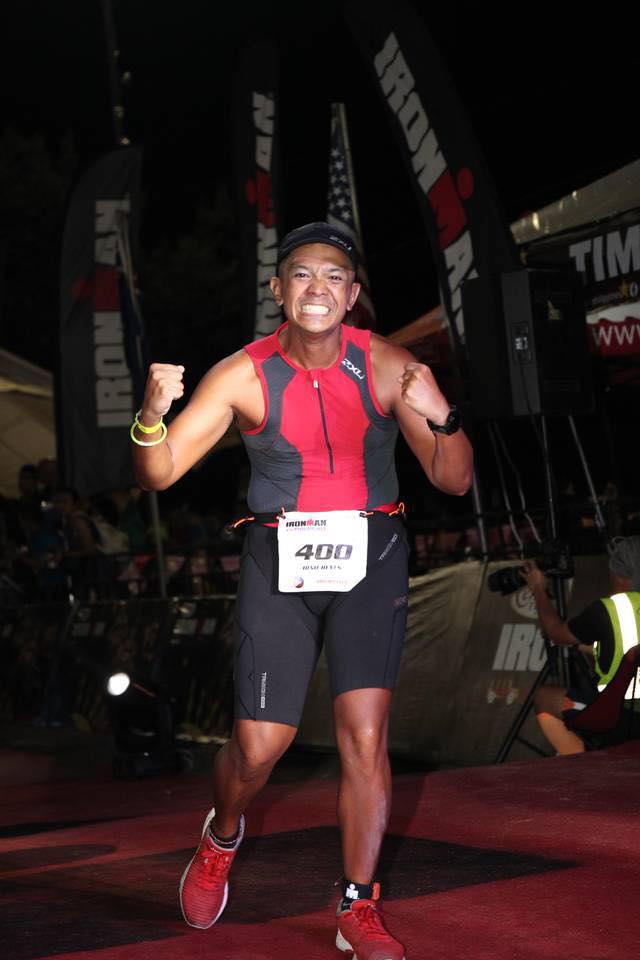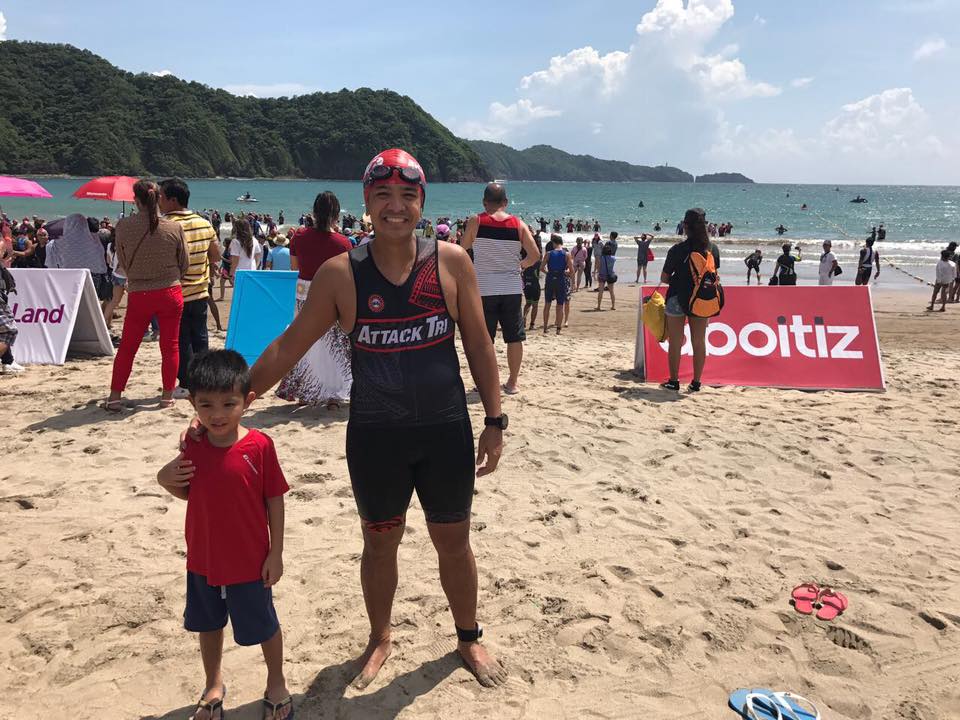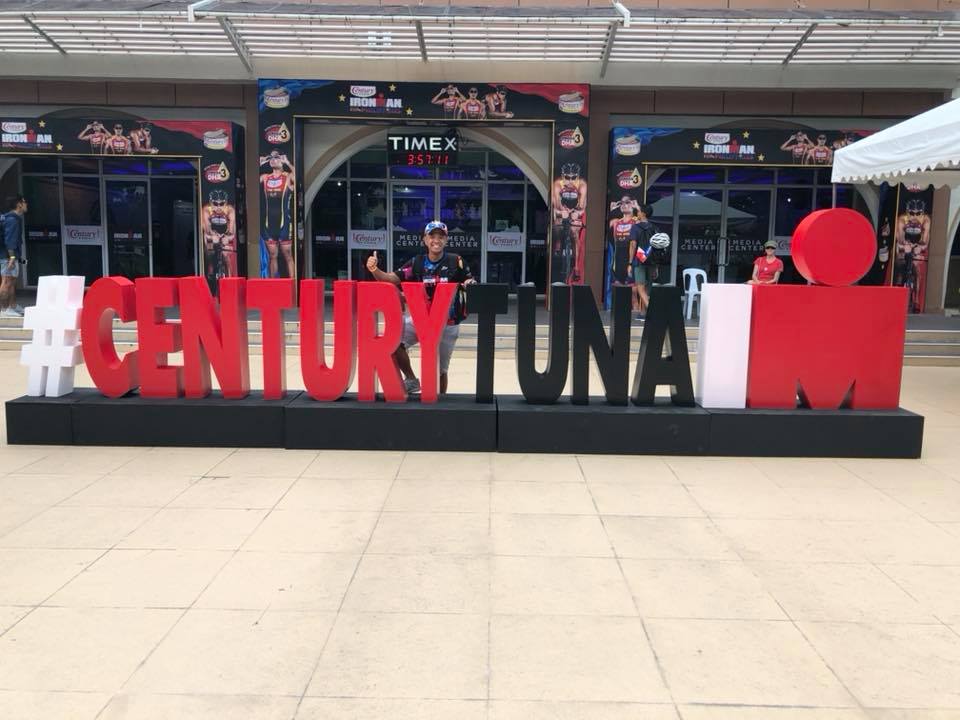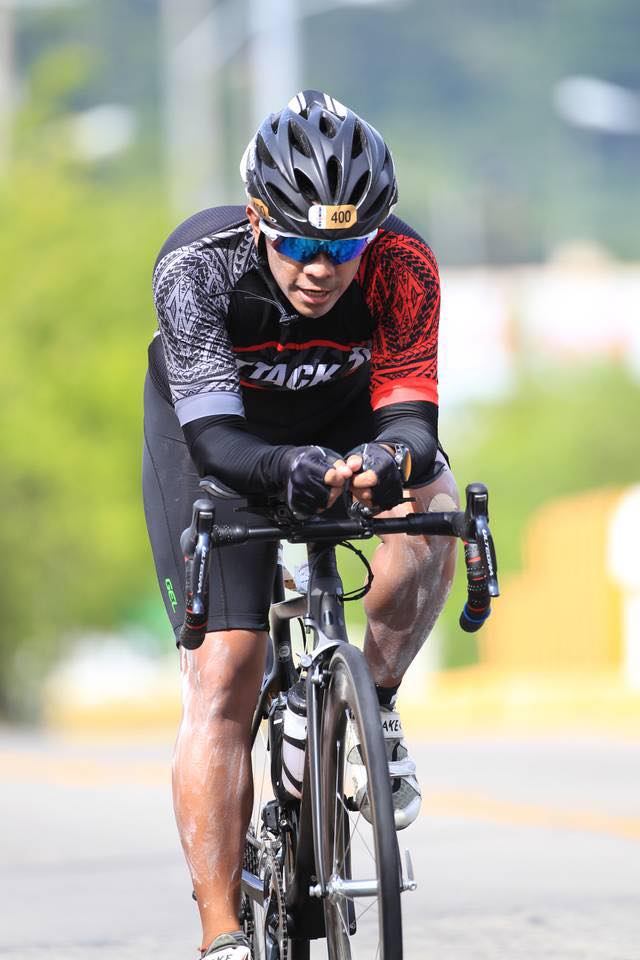Cancer patient JM Reyes has bagged 28 finisher’s medals from different racing events in the country, including one from the first and only Ironman Philippines
Photos courtesy of Mary Ann Saquing and JM Reyes
Dealing with your emotions after learning you have cancer is one of the hardest things you will have to endure. You cannot simply overlook the anxiety, fear, and depression that come with the diagnosis. Treatments aside, a positive outlook on life and support from people are forms of antidote any cancer patient can rely on. And these have driven JM Reyes to survive for his family to the point that he also mustered enough strength and initiative to take up triathlon and beat cancer at the same time.
In May 2015, Reyes learned of his illness after being diagnosed with Non-Hodgkins lymphoma of the nasopharynx (the first stage of the cancer between the nose and throat). He had to undergo at least 25 radiation therapy until it reached a point in which his throat was burned, resulting in losing his sense of taste. Two years after his diagnosis, Reyes signed up for Aboitiz Triathlon last year, his very first event. Everyone was a little uncertain, including his coach who convinced him to fully prepare first before joining the event. And so he did, training three to six hours a day and joining duathlons, aquathlons, fun runs, trail runs, and short distance triathlons every weekend for eight months.
What was running in your mind when you were diagnosed with cancer?
When I first heard that I have cancer, I thought it was the end. Just like that, you will be leaving behind a one-year-old girl and a three-year-old kid, it’s the worst feeling that I have ever felt. I felt like I was too young to die, I haven’t even achieved anything in my life during those times.

How did you overcome your fears?
Of course, who doesn’t want to live and fight? Right away, I consulted doctors and they did tests. I was in the hospital for two months every day just to undergo treatment. In the course of my treatment, I felt like my body was really getting weaker. I lost my sense of taste as I was not producing enough saliva. I wasn’t able to eat and it took me at least two hours just to finish a 240 ml of Ensure. Swallowing was like hell. It felt like I was drinking liquid with broken glasses in it. That’s how hard it was.
Given your situation then, what made you decide to become a triathlete?
During my treatment, which was around August to September of 2015, I was watching an Ironman inspirational video on YouTube with the song “Hall of Fame” by The Script. I’m quite sure many triathletes know that video. I cried and said to myself, ‘I am at my worst, I am in pain mentally and physically, if I get through this, I’m going to test my limits, test if what I’m experiencing right now is a lot harder than what they do in Ironman.” I was always positive and happy. My family was always there for me. It made me want to fight and challenge myself because in my mind, I believe that anything is possible.
Where do you get the courage to fight cancer and finish a triathlon?
We only live once, so do the impossible, try out things you think you can’t do, and take risks. I don’t want to be my old self, a guy who just stays at home, chilling, and watching television or playing video games. I want to show my kids, family, and friends that if you’re still breathing, you can still do something to make your life fulfilling.

How has competing in triathlon helped you become the person you are today?
Some people called me the “Overnight Ironman” because I only trained for about eight months. When I signed up for Ironman Philippines in August 2017, I’ve just learned to ride on cleats. My first race was at Aboitiz Triathlon in September last year. After registering for Ironman Philippines, many people called me crazy. Some said they’ve done a couple of standard distance and 70.3 races, but they’ve never tried to do a full distance race.
“One thing that I believed for a very long time now is to just stay positive, don’t think about it too much. Enjoy your life every day, love yourself and the people around you”
Only a handful of people knew I had cancer and some even thought I took drugs because I lost around 40 to 50 pounds. I was a fat guy back then. Racing Ironman taught me how to be patient; it taught me that in life you shouldn’t worry too much about things you can’t handle. Just do what you love and what makes you happy. You really never know what might happen tomorrow.
What did others do or say to you that made a difference?
Everyone was supportive, especially my wife, kids, and my mom. They were worried of course with biking due to the possible accidents like crashing or drowning during the swim leg. But in the end, I just tell them every time, “Kaya ko ‘to, ‘wag kayo mag-alala.”

What have you learned throughout your journey both in dealing with cancer and finishing an Ironman race?
Training was hard and expensive, I only had eight months. I don’t even have a 70.3 qualifier so I needed to race every event available. Imagine, I have around 28 finisher medals in less than a year from marathons, fun runs, aquathlons, time trials, duathlons, triathlons, and even trail runs just to prepare myself mentally and physically. The cartilage on my left knee was painful every time I run. I do not have much saliva because of the treatment. So I need to drink water more often than others. If ever I’m going to die anytime soon, I want to die with leaving something inspirational for others, so people will know who I am and what I’ve done. I want my kids to tell their friends that their dad is an Ironman.

What would you tell a person who has just learned of their cancer diagnosis?
I have always believed in something and in myself. When you feel something is abnormal happening to you, do not hesitate to have a check-up. Don’t wait for the worst thing to happen. Cancer can be treated. We can fight it. Don’t lose hope. One thing that I believed in for a very long time now is to just stay positive, don’t think about it too much. Enjoy your life every day, love yourself and the people around you. In the end, malay mo, maging Ironman ka someday.
2 comments
how to be featured? 🙂 … Thanks …
For story pitches, please send an e-mail: [email protected]